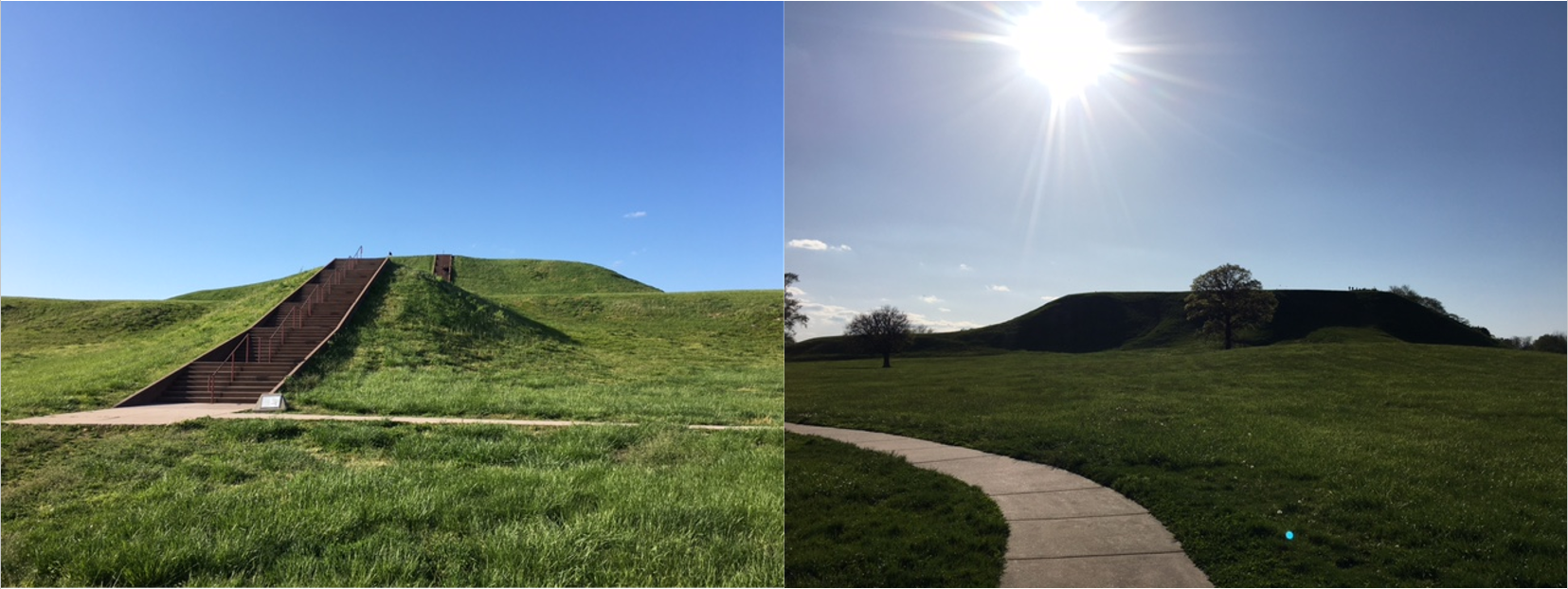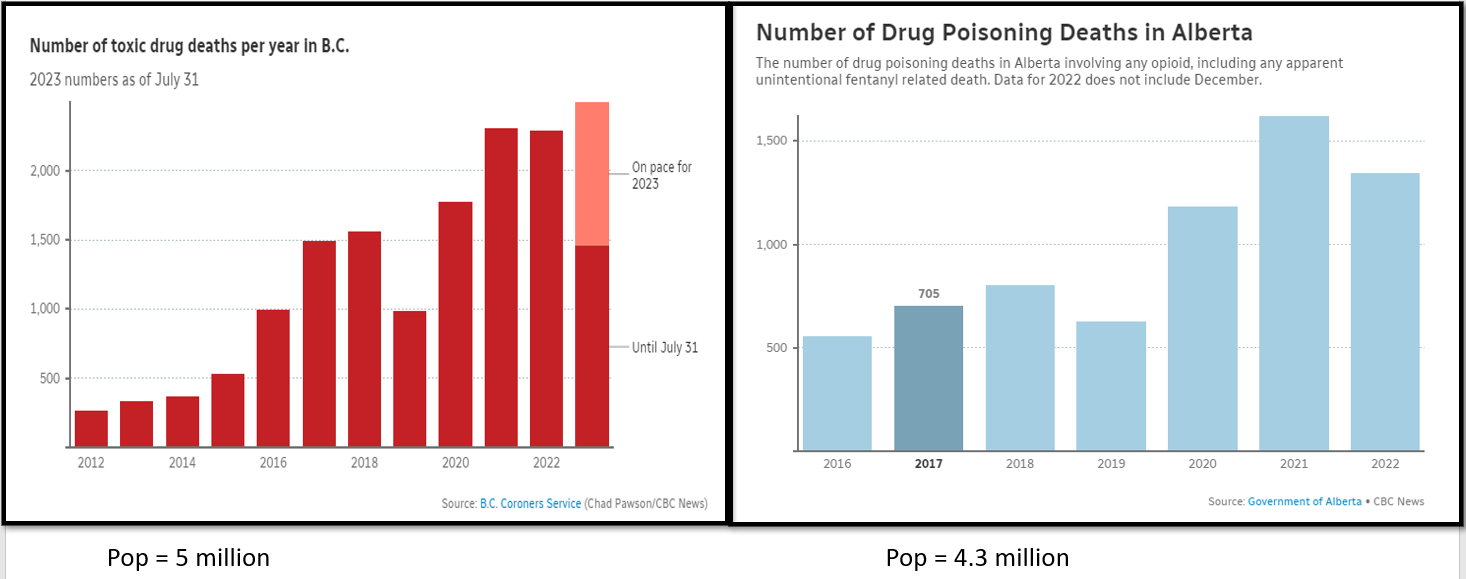Assorted Links (Summer 2023)
It's been a year since my last links post. Tried to squeeze this one in while it's still technically summer. This one has more video content than previous ones.
I'll start with something I wrote elsewhere: a guest post for an online book club on C.S. Lewis' The Four Loves.
A few places I've gone earlier this year that are worth sharing:
- On a business trip to Illinois I was driving past the Cahokia Mounds with some time to spare so I stopped and checked it out. It's a UNESCO World Heritage site which I previously mentioned here (since making that list, I've also been to some sites in Denmark and the Netherlands).

- The research group where I studied for my master's degree (here's one of the papers from my research) recently celebrated a 3oth anniversary and there was a nice longitudinal reunion that I attended. It was nice to see some old friends and colleagues again and to meet current students and hear about their research. It was also inspiring to see the impact that Dr. Huck, the head of this group, has had over his lengthy career in the water industry.
- The Beaverbrook Art Gallery currently has an exhibition by a landscape photographer whose work I enjoy, Edward Burtynsky (see this post for a previous mention of his work). This is one piece I especially liked:

Getting into the videos I mentioned above, the first one I wanted to share is of a hydraulic computer. It is more polished than the one I tried to make, but uses a similar principle.
Here's another video on analogue computers.
This one is a good introduction to sediment transport in rivers and Lane's Balance:
In this post (about halfway down), I discussed the possibility space for the evolving balance of power between the US and China. You don't have to assume one extreme or the other as an outcome: other possibilities include continuation of the status quo, ossifying spheres of influence, or division and decline afflicting both superpowers. Here's a series of three videos (so far) that get different people's takes on how/whether China will continue to rise as the next superpower:
- Is Peter Zeihan or Ray Dalio Right About China's Economy? - YouTube
- Is Peter Zeihan or Ray Dalio Right About China? (Pt. 2) - YouTube
- Is Peter Zeihan or Ray Dalio Right About China? (Pt. 3) - YouTube
- also check out this one (covering broader economic topics)
I appreciate seeing this testing of different pundits' views against each other. My take on the object-level question is that from my vantage point it looks like every major power is way out over their skis right now: whether financially (debt and unfunded/unsustainable spending commitments, real estate bubbles, etc.); in terms of demographics and skilled workforce availability; in terms of increasing internal division and worsening social cohesion; due to strategic supply chain vulnerabilities (e.g. importing necessities from unstable regions); or some mix of these. Or, in the case of Russia, entangled in a war of attrition that—even if they come out the other side with more territory—will likely take decades to rebuild capacity afterwards. It’s far from clear to me who will blink first.
The last video I want to share is one I made, about slide rules:
(if you like that, check out this post).
Moving on from videos to articles and other links, on subjects ranging from math to geopolitics.
This infographic of the size of national economies is good context to keep in mind. Turkey and Saudi Arabia are now in the trillion-dollar club (of annual GDP). India is now the 5th largest economy in the world, ahead of the UK (the next two spots are Germany and Japan, which are facing major demographic headwinds). Russia is only the 5th largest economy in Europe. Also on the subject of national economies, this interactive atlas to visualize exports and imports is fascinating to play around with, and a very useful reference (I may use it more in a future post I'm thinking of about Industry).
Speaking of atlases, a friend wrote this review of a video game atlas.
Here's some more about what's going on in Canada and the world lately:
- Some analysis of tensions over Taiwan
- Bill C-18 has affected the online sharing of news in Canada
- How many of the challenges we face come from our demographics? On a similar note, some predictions of migration.
- On Indian-American relations
- Related: reshoring and friendshoring
- Some dark humour about Canadian healthcare in this satirical headline
The Canadian provinces of British Columbia and Alberta are taking some different policy approaches to drug addiction and abuse crises. B.C. is trying, among other things, decriminalization of even hard drugs, while Alberta is emphasizing residential treatment facilities. The rising trends in fatalities from overdoses or toxic drugs have been broadly similar in the two provinces from 2016 to 2022 as seen in the following graphs (e.g. both saw a dip in 2019, then a return to a rising trend), so I'm pre-registering that this is a good natural experiment on these policies. If the trends diverge going forward that would suggest one approach is more effective.

Water and energy are professional as well as personal interests of mine:
- The Sabatier process is an electrical synthesis of renewable natural gas. To me it or something like it makes more sense than green hydrogen because it works with much more existing infrastructure and equipment.
- The Mississippi watershed is really overpowered as an economic and strategic asset. From the same source, a discussion of hydroelectricity in Canada and the inescapable tradeoffs of power generation.
- Remember predictions of lots of water wars in the 21st century? So far those have mostly not materialized (although there are definitely international tensions around Ethiopia's mega dam on the Nile and the Himalayan region).
- "Wealth is more than just property that has an exchangeable value; it is all the delightfully improbable states of matter around us that suit our human purposes. Yes, your iPhone is wealth, but so is a clean and pleasant living space, national infrastructure, societal institutions, and even intellectual traditions such as science itself. All these things are created by using energy to do work on the world, sometimes over very long periods." On the essential role of energy in wealth.
- Here's a profile/interview with Vaclav Smil. I recently read his book Growth and hope to write something about it here eventually (maybe in the first half of next year?).
What I'm currently reading is City of God by St. Augustine. This review makes the case for its contemporary relevance. Here are some other links on Christian topics or themes:
- Tom Holland's Dominion is on my list to read in the future. Here's a review/interview.
- Evidence that St. Thomas made it to India.
- A review of RRR (more in-depth than the one I had here)
- The rise and fall of the Hittite empire. It lasted to the end of the Bronze Age, so is good for understanding the context of that era (like some context I had in this post about the early Iron Age).
- An essay about the Good Samaritan, compassion, community, and reciprocity (related to the graph above on BC drug deaths).
AI/ML is a topic still attracting a lot of interest right now. Here's a couple of articles that focus on the positives, such as possibly improving the news or taking a critical view of some much-publicized risks. Here's an under-the-hood explanation of ChatGPT. But there's also predictions of disruption (albeit potentially creative destruction), and a reminder of the limitations of this technology among the links I have to share. That last one is about how AI has different blindspots than human players in the game of Go (thus is relevant to this post from last year).
The previous paragraph is about an area of technology that is moving very quickly right now. It's hard to keep up with all the developments, so establishing general principles for how we interact with technology can be a more effective investment of one's time and attention (that's part of what I was aiming at in this post). So consider "intentionally selecting which technologies we allow into our lives".
A theme I've started thinking more about in the past couple of years (some thoughts along these lines are here, and I have some additional ideas on my list to try to write about next year) is what it takes to keep industrial society running. The challenges of managing complexity, disseminating tacit knowledge, and maintaining systems that no single individual fully understands—that sort of thing. The following links touch on this general theme:
- Managing knowledge within companies.
- The bureaucratization of research.
- The best glassblowers for laboratory glassware are getting close to retirement.
- The essential high floor for conscientiousness in certain endeavours of production.
This penultimate section contains some resources that may be useful (maybe just to me, but hey!) someday:
- Downloading Wikipedia.
- Classic DOS games
- Options for personal-level nearshoring in laser cutting and 3D printing.
- Plans for skin-on-frame kayaks.
Finally, here are some miscellaneous things that didn't fit in earlier in this post, but I still wanted to share:
- There's a neat series about Roadside History in New Brunswick that includes a never-finished ship railway across the isthmus of Chignecto. I've heard of it before, but maybe someday I'll take a detour and try to spot the remnants.
- Did you know there are now multiple buildings of 10+ storeys that use wood as a significant structural component?
- Increase your understanding of graph theory and network structure.
- Some parenting tips.
If you made it all the way to the end, I hope you found something that caught your interest in a worthwhile way.